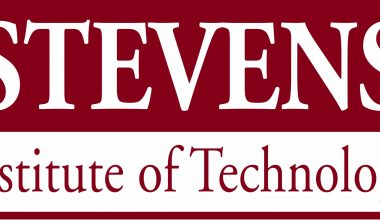Studying in the United States can be very interesting in a variety of ways, especially ways that sound fun and incredible. If you are willing to learn more about the mind-blowing world of American colleges, buckle up, and be wowed by our cool fun facts about colleges in America
Within the larger canvas of higher education in the United States, there are a myriad of prestigious Ivy League universities, vigorous state universities, and creative community colleges. These colleges provide statistics and great performances, as well as remarkable achievements and noticeable milestones, to give students the best educational experience.
This article will take you deeper into the Fun Facts About Colleges in America, regardless of whether you’re a prospective student looking at their options, a parent seeking guidance, or just a passionate learner who is looking for more information.
Table of contents
Why are US Colleges Better?
When it comes to higher education, American colleges shine brightly as beacons of excellence. So, why are US colleges better? Brace yourself for an enthusiastic exploration of the many reasons that make them stand out!
First and foremost, American colleges offer unparalleled diversity. With a vast array of academic programs, majors, and disciplines, students can find their perfect fit and tailor their educational journey to their passions and aspirations. This breadth of choice fosters innovation, critical thinking, and a holistic approach to learning.
Moreover, US colleges boast world-class faculty at the forefront of their fields. These dedicated professors, renowned for their expertise and cutting-edge research, provide students with invaluable mentorship, guidance, and hands-on experience.
Let’s not forget the exceptional resources and facilities available at American colleges. State-of-the-art laboratories, libraries with vast collections, and cutting-edge technology create an environment where students can thrive and reach their full potential.
Lastly, the vibrant campus life and extracurricular activities provide a well-rounded education. From engaging clubs and organizations to exciting sporting events, students have ample opportunities to grow, network, and create lifelong memories.
In a nutshell, US colleges offer a unique blend of academic excellence, diverse opportunities, renowned faculty, and outstanding resources that set them apart. So, buckle up for an extraordinary educational journey that will shape your future in ways you never imagined!
Read: What to Wear to College in the US
How Does College Work in USA?
Understanding how college works in the USA is key to navigating the higher education landscape. Generally, college in the US refers to a four-year undergraduate program that follows high school completion. Students typically choose a major or field of study and complete required courses and electives to earn a bachelor’s degree.
Colleges offer a variety of academic programs, ranging from liberal arts and sciences to professional disciplines. Students can customize their course schedules based on their interests and career goals.
College life extends beyond the classroom, with vibrant campus communities, extracurricular activities, clubs, and sports teams. Students often live on campus in dormitories or participate in off-campus housing options.
Additionally, colleges may offer graduate programs, including master’s and doctoral degrees, for further specialization and advanced study.
Tuition fees vary depending on the institution and may be offset by financial aid, scholarships, or grants. Overall, college in the USA provides a comprehensive educational experience that prepares students for their future careers and personal growth.
Also, see: Questions to Ask Potential College Roommates.
Fun Facts About Colleges in America
- Did you know that Harvard University, one of the most prestigious institutions in the US, was established in 1636, making it the oldest university in the country? It has a rich history spanning nearly four centuries!
- In the spirit of innovation, Stanford University holds the record for producing the highest number of successful entrepreneurs and founders of billion-dollar companies, including Google, Yahoo, and Netflix. No wonder it’s often called the “Silicon Valley University.”
- Ever wondered why Dartmouth College has its name for freshmen? At Dartmouth, they are called “first-year students” to promote inclusivity and create a welcoming environment for all new arrivals.
- Have you heard of the “Running of the First-years” tradition at Williams College? Every year, students dash through the library doors at midnight during finals week to claim their favorite study spot. It’s a lighthearted way to relieve stress and embrace the collegiate spirit.
- Berea College, located in Kentucky, is unique in providing free tuition to all its students. It is the only US college offering such an extraordinary commitment to access and affordability.
- Love sustainability? You’ll be fascinated to learn that the College of the Atlantic in Maine is powered entirely by renewable energy. The college is committed to promoting environmental stewardship and has even been named the greenest college in America.
- It’s not just humans who pursue higher education in the US. At Eckerd College in Florida, students can bring their pets to campus. The college’s “Pet Policy” encourages a pet-friendly atmosphere, making it an ideal choice for animal lovers.
- Did you know the University of Chicago has a quirky scavenger hunt called the “Scav”? This annual event challenges students to complete over 300 mind-boggling tasks, from building a functioning nuclear reactor to finding a real-life unicorn!
- Cornell University, located in Ithaca, New York, boasts one of the largest collections of herbs in the world. Its renowned “Cornell Botanic Gardens” features over 4,000 species of plants, making it a paradise for botany enthusiasts.
- The Massachusetts Institute of Technology (MIT) has a long-standing tradition of “hacking,” where students perform elaborate and clever pranks. These “hacks” often transform prominent campus landmarks into whimsical and creative displays showcasing students’ ingenuity and sense of humour.
FAQs – Fun Facts About Colleges in America
Students flock to study in the USA for a myriad of reasons. The country offers world-renowned universities, diverse academic programs, exceptional research opportunities, access to cutting-edge technology, vibrant campus life, and a global network.
Choosing the USA over other countries for education comes with numerous advantages. It provides a wide range of prestigious universities, a global reputation for excellence, a diverse and inclusive environment, extensive research opportunities, a strong emphasis on innovation, and abundant career prospects.
In America, college refers to a higher education institution that offers undergraduate degrees. It is typically a four-year program after high school.
Conclusion
As a home of education and personal development, American colleges provide several platforms for students to try their luck at achieving great academic performance. These are the names that their renowned professors give to the many education programs, the most modern facilities, and the vibrant campus life that these institutions continue to attract students from around the world.
The US education system is a leader in educational innovation where students are given the room to broaden their horizons, discover their sense of self, and see the world from different lenses.
American colleges crystallize what really transformative education is about; whether it be the rich history of the Ivy League schools or the spirit of creativity at the most famous of them, or the dedication that others have to inclusivity and affordability.
The college experience in America is unique in that it allows learners to be who they are, develop critical college skills, and, ultimately, impact society’s development.
References
- susangreenecopywriter.com – Top 20 Surprising Facts About College Today
- topuniversities.com – Nine Unbelievable Facts About Top US Universities
- uopeople.edu – College Fun Facts That Will Surprise You




